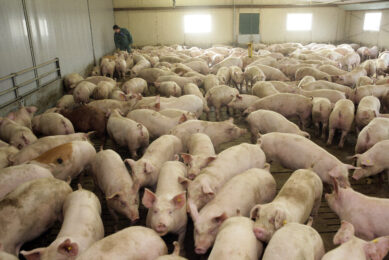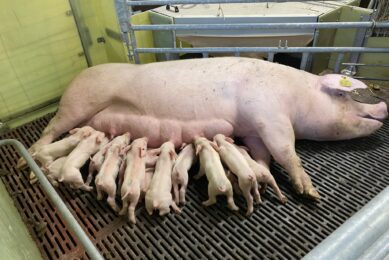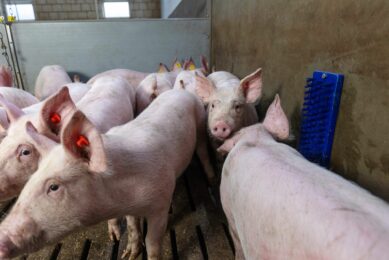Animal wellbeing needs a multidisciplinary approach
Boehringer Ingelheim held its 3rd International Expert Forum on Farm Animal Well-Being on 4 June in the heart of historical Barcelona. Some 100 participants from 10 different countries and a variety of scientific disciplines attended the meeting, including welfare scientists, behaviourists, veterinarians and representatives from the livestock industry.
Marion Kluivers (Wageningen UR Livestock Research, Netherlands) showed that the administration of Metacam® in a group of castrated piglets anaesthetised with local lidocaine resulted in a reduction of pain-related behaviours such as huddling and tail-wagging. Kluivers also discussed new methods for measuring pain in tail-docking, such as skin temperature, heart rate or body weight. ‘The future of pain research in farm animals lies in establishing adequate pain relief protocols and developing reliable and non-invasive methods of measuring pain’, she concluded.
©
Eberhard von Borell (Martin-Luther-University Halle-Wittenberg, Germany) presented a study on the influence of general anaesthesia and analgesia on post-castration behaviour in piglets. The group treated with a drug combination (ketamine + azaperone + Metacam®) showed a ‘higher level of post-surgical stress’ than the Metacam®-only group. Piglets from the Metacam®-only group were also more capable of defending their preferred teat position. These results suggest that anaesthesia with ketamine and azaperone causes unfavourable behavioural changes after surgery in piglets.
©
Bringing economics into the equation
Two specialists focused on the economics of welfare. Henri de Thoré (pig producer, France) underscored the fact that the pork industry is a global business where international competition drives the market and that an increase in welfare-associated costs may lower European competitiveness. ‘Farmers will be happy to deliver the level of animal welfare that consumers can afford’, he concluded.
Xavier Manteca pointed out that profit increases together with animal welfare up to a certain point, known as the ‘economic optimum’, beyond which profit falls as animal welfare improves. The key question is whether this economic optimum corresponds to a high or low level of animal welfare. ‘Animal health scientists should take economics into account in their research to find strategies likely to lead to a win-win situation’, he argued.
©
The forum’s practical approach and the speakers’ different fields of expertise allowed participants actively to engage on two of the driving forces behind welfare concerns: ethics and economics. The question-and-answer session offered a forum for interactive debate and revealed a potential gap between the opinions of some welfare experts and those of farmers.
©
‘This forum aims to foster scientific exchanges between animal scientists and the veterinary profession’, said Laurent Goby of Boehringer Ingelheim. ‘Animal welfare is an imperative in our business’, stressed Gerald Behrens, also of Boehringer Ingelheim, adding that ‘in the long run, we are not producing meat or milk, we are producing satisfied customers’.
©
Join 18,000+ subscribers
Subscribe to our newsletter to stay updated about all the need-to-know content in the pigsector, three times a week. Beheer
Beheer










 WP Admin
WP Admin  Bewerk bericht
Bewerk bericht